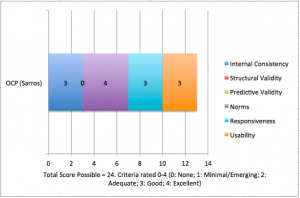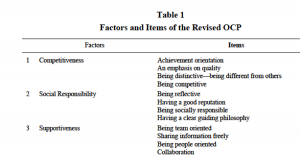| Organizational Culture Profile (Sarros) | |
| The 2005 Sarros et al version of the OCP is a 28-item instrument used to examine the congruence between individual and organizational values, adapted from the original instrument for a sample of Australian managers. | |
|
Evidence-Based Assessment Rating Profile
|
Sample Items |
| Relevant Literature: | |
Organizational Culture Profile (OCP; Sarros)SIRCTeam2016-11-17T01:52:06-06:00


